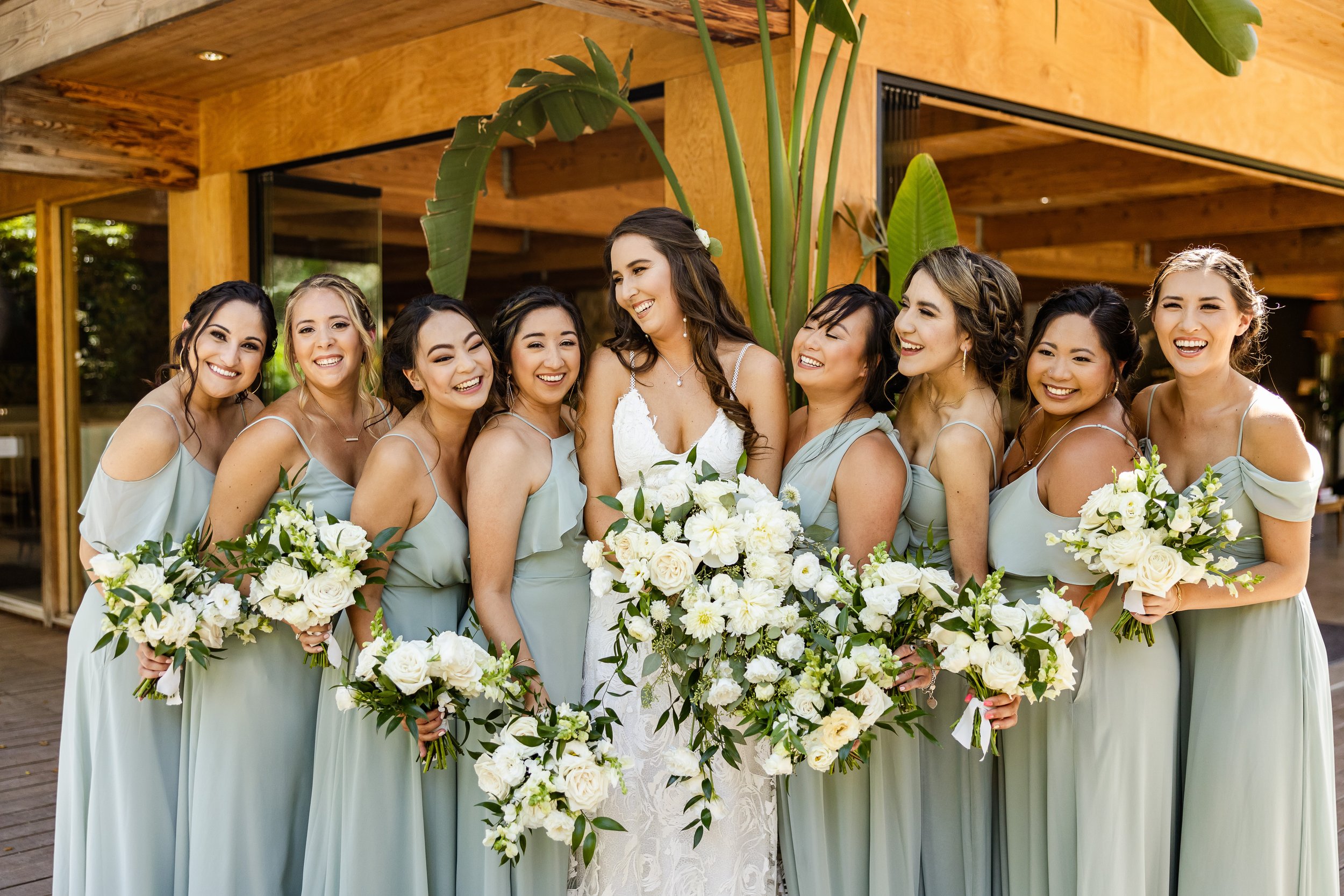Wedding Etiquette: Who Pays For What In A Wedding?
All photography by Chelsea Smith Photography
One of the very first steps in planning a wedding is determining the budget. With that, comes the discussion of who will be contributing, how much, and what that all entails. Over the past decade, we've seen a major shift in the wedding industry in terms of wedding etiquette and who pays for what. There are many factors that have affected this shift, but the overarching theme is pretty simple- there is no "right" way! Whether you plan to pay for the entire wedding as a couple, split it 50/50 with each family, or stick to tradition, what's right for you is the best decision.
How to Approach the “Who Pays For What" Conversation
Because money can be a touchy subject, it's best to approach this topic openly and without any preconceived notions. Each couple and family will have different expectations, thoughts, and feelings towards the subject depending on their unique circumstances. Before approaching your families, make sure you and your partner are on the same page. Discuss the overall vision for your wedding with a general guest count in mind. And determine your top priorities to begin setting your preliminary budget.
Once you have a basic number in mind, you can begin to open up the conversation with family. Make sure to be transparent about what you want, how much you can afford to pitch in, and what they can expect to pay in each category. Be open to compromise and set realistic expectations to ensure everyone is on the same wavelength.
5 Common Cost Split Variations
Traditionally, the bride's family would pay for about 85% of the wedding with the groom's family covering the other 15%. This doesn't work for every situation, however, and doesn't address the intricacies of the LGBTQIA+ community. Here are a few common ways to split the cost between participating parties.
Who Pays For What According to Tradition?
**Disclaimer: The following breakdown of costs is based solely on traditional wedding etiquette. These lists are generalized and serve as a rough outline of financial responsibility. I recognize the complexity of budgeting for a wedding and how it's changed over time. I also acknowledge that not every couple fits into these descriptions!
bride’s family
Engagement Party
Stationery (save the dates, invitations, thank you cards)
Wedding Dress & Accessories (veil, jewelry, shoes, etc.)
Venue(s) & Catering
Wedding Planner/Coordinator
Photography & Videography
Transportation
Reception (rentals, florals, decorations, dessert, photo booth, etc.)
groom’s family
Marriage License
Officiant
Rehearsal Dinner
Wedding Entertainment
Reception Alcohol
Day-After Brunch
bride & groom
Partner's Ring(s)
Wedding Gifts (partner, wedding party & parents)
Beauty (hair, makeup, nails, tan, wax, etc)
Wedding Party Hair and/or Makeup (on occasion)
Groom Wedding Attire & Accessories
Bridesmaids & groomsmen
Dresses/Tuxedos & Accessories
Travel Expenses
Bridal Shower
Bachelor & Bachelorette Party
Hair and/or Makeup (sometimes)
What About Elopements And Second Marriages?
An elopement or second marriage may lessen the expectations for different aspects of the budget, but ultimately it is up to the couple and families to decide. An open and honest conversation will always be the recommendation when discussing your budget.
A Brief Summary
There is no right or wrong way to approach who pays for what in a wedding. While some couples may stick to tradition, it's okay if your situation doesn't quite fit the script. As long as the conversation is had and everyone is in agreement, that's all that matters!
Discuss your wedding vision & finances with your partner.
Create a generalized guest list and wedding budget.
Approach your family with openness, honesty, and a willingness to compromise.
Know that there is more than one way to split the costs.
Do what's right for you!
Need more wedding planning tips? Check out this blog on 10 mistakes most couples make when wedding planning and how to avoid them








